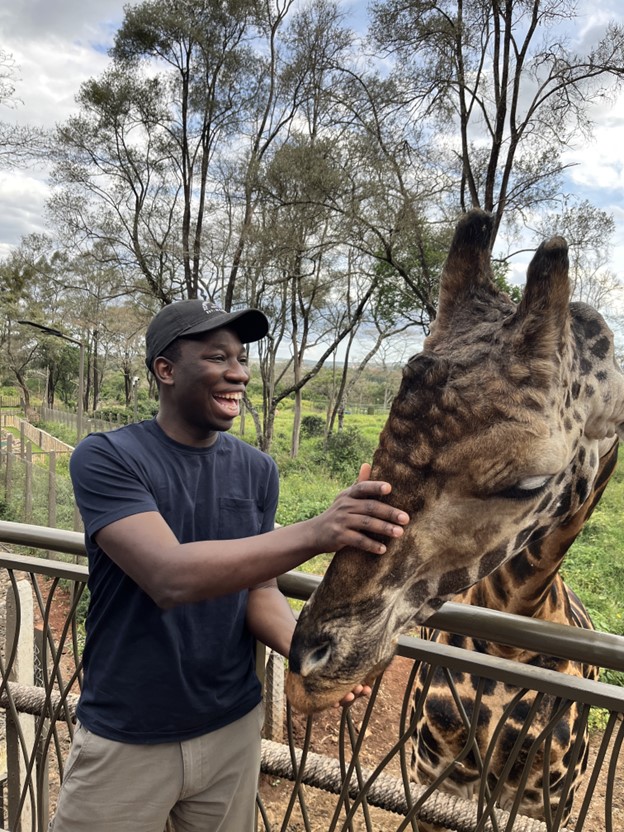‘Gbenga Sadik, Kenya Internship (2023)

Reflections on Summer Internship – ‘Gbenga Sadik
My ongoing master’s program at the Friedman School of Nutrition Sciences and Policy, Tufts University has exposed me to a whole new world of multi-sectoral collaboration for improving food and nutrition outcomes in the world. In the summer, I had the opportunity to put to practice all that I had learned through an internship program courtesy the Seeding the Future Foundation at the Food and Nutrition Innovation Institute. This opportunity saw me working in the intersection between food entrepreneurship, innovation, economic development, business, and nutrition science.
The internship program partnered me – a graduate student from a food and nutrition background with another graduate student from the Fletcher School who has a background in International Business and Trade, thus emphasizing the need for cross-disciplinary innovation for better food and nutrition outcomes. We set out to the city of Nairobi to support the brilliant objectives of Partners in Food Solutions (PFS) – a US-based organization focused on improving the business outcomes and social impact of nutrition-focused food processors in Africa.
Our primary place of assignment was with one of PFS clients called Tropical Lush – a beverage company in Nairobi with a special value proposition of making a wide variety of fresh, natural fruit juices without additives or concentrates. The company which has existed in Nairobi for more than two decades, has challenges that are not necessarily unique to business of its size and nature in this part of the world – inefficient pricing methodology, supply chain concerns, short product shelf life, and difficulties selling directly to consumers.
My partner and I executed two projects aimed at helping Tropical Lush solve some of these challenges. First, we developed a costing model that helps the company determine the unit cost (per liter) of each of their juice products. This would help them develop a more efficient pricing methodology for their customers. Our second project was to develope a nutrient profile for all the company’s juice products to help implement a nutrition-focused marketing strategy.
In addition to our work with Tropical Lush, we had the opportunity to interact with other food businesses in Nairobi across the maize, dairy, and nuts value chain. These discussions provided unique insights to the Kenyan food system and further broadened my knowledge and interest in shaping the continent’s food policy environment.
This internship provides a perfect summary of my experience at Tufts University so far – the discovery of insightful knowledge, and an opportunity to act through multi-disciplinary and cross-cultural collaboration. Like a child in a candy store, every turn I take is a new, shiny discovery and with each passing day at Tufts University, my desire to be a changemaker in the global food policy space takes a giant leap forward.

Did you know there are 147 “ecolabels” for food products alone? This number doesn’t even include the number of nutrition claims that are used. With so much consumer confusion and mistrust toward these labels, industry stakeholders have raised concerns about how to guide their labeling efforts. Based on interactions with the industry and the community, our team devised a survey to determine how customers view sustainability and nutrition when purchasing food products. By testing different packaging layouts and messaging techniques, we obtained qualitative and quantitative insights into what resonated most with consumers in terms of sustainable nutrition messaging. Our findings have identified specific strategies to communicate sustainability and nutrition through packaging, aiming to reduce confusion and increase consumer trust. We invite you to review our research and consider implementing our insights into your own company's labeling efforts.